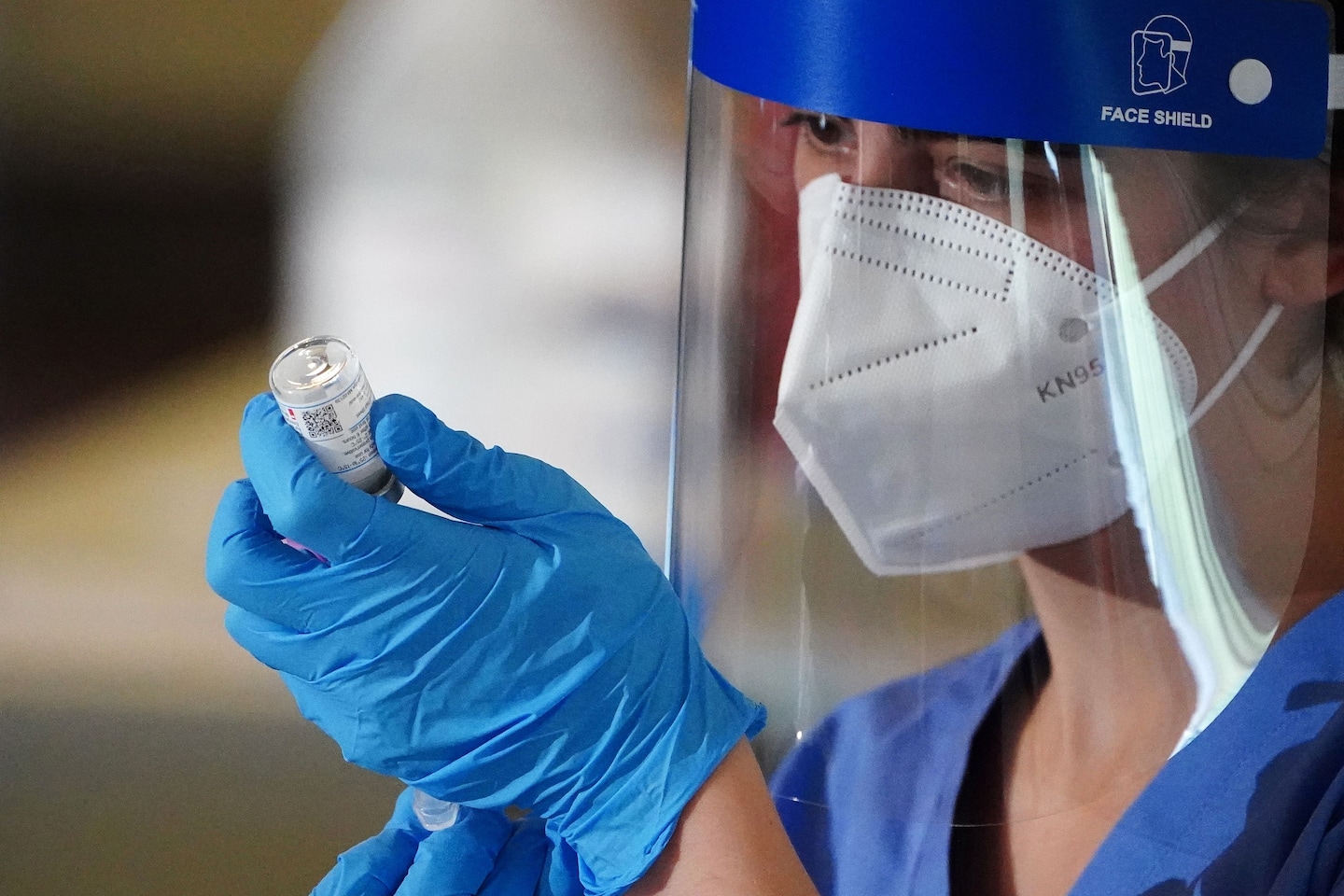Think about getting vaccinated like voting. It’s your civic duty.

But I was shocked to discover that several health-care workers I know declined their vaccine dose. In the staff lounge this week, I heard:
“Too early; I’ll wait and see.”
“Not interested.”
“Not for me.”
It’s the same attitude you find among people who don’t vote: “Too much trouble.” “One more vote won’t count.” “Someone else will do it.”
We cannot allow such thinking to take hold. As with voting, the only way our nation can succeed in moving on from this pandemic is if we all do our part.
To be fair, most of my emergency and intensive-care colleagues did not share that reluctant reaction to the vaccine. For many of them, the day they received the email from the hospital that they were able to receive the vaccine was like a new V-day. One of my friends, who had been working remotely from Boston, immediately got in her car when she got the word and drove four hours directly to New York. Later that evening, after putting her kids to sleep, another took an Uber to the hospital in her pajamas.
For me, the day could even be a future national holiday. It forecasts the restoration of life as we knew it, but even better. It is a day marking the beginning of saving and re-creating lives, opening up life-changing possibilities and resuscitating the economy. It means my daughter might have the wedding this summer that she has hoped for.
The moment my email arrived, my adrenaline kicked in and, still horizontal in bed, I began furiously texting my great news to more than a dozen people. Within minutes, my euphoria turned to guilt. How could I flaunt my anxiously awaited great fortune to others whose hopes for the vaccine would not be satisfied for the indefinite future?
But no, I realized, I wasn’t flaunting. I was shouting to the world: “It is here! it is happening!” Although I am among the first to receive the vaccine, I won’t benefit from it until an overwhelming majority of Americans is vaccinated too. My own personal protection keeps me from getting sick; it does not speak to my level of contagion to others, and I might still be able to spread the virus to someone else. Until we reach herd immunity, none of us will be able to remove our masks, to hug without hesitation and to fearlessly touch another person.
Some calculations show that if 61 percent of Americans (202 million) receive the vaccine in the next five months, we could probably achieve herd immunity by July 2021. If another 10 million Americans receive the vaccine in that time frame, we can achieve herd immunity by May. Of course, this does not speak to how long herd immunity will last and if we will need booster shots if our immunity wanes, like with the flu, but at least it is a start. It also embraces the unlikely assumption that all Americans will be offered the vaccine by April. With the phased approach of vaccine distribution, we will probably not see this. However, it does speak to the enormous potential of vaccination.
Thus, it is not just a privilege to receive this vaccine first. It feels like a patriotic gesture and my responsibility as a member of the American community. And just like with voting, this patriotic duty will not come without effort.
Those who are less excited about getting a jab in their arm are right about one thing: One vaccination isn’t going to change life in this pandemic. In the short run, it might not even change your life that much. But as more vaccines are distributed, the numbers will add up. It will take a large majority of us to be vaccinated before we can make a difference, but together, we can make it happen. Health-care workers, who have been offered the vaccine first, should lead the pack, not only in receiving the vaccine, but in modeling for others to receive it, too.
We can achieve herd immunity, and all it involves is a series of two shots. My first was quick; it was painless; it was symptom-free. Most important, it was safe.
In March, we asked you to stay home to help us save lives. Now we are asking you to get vaccinated. Next phase will be the elderly and essential workers. When you are called, please say yes.
Watch the latest Opinions video:
Read more:






